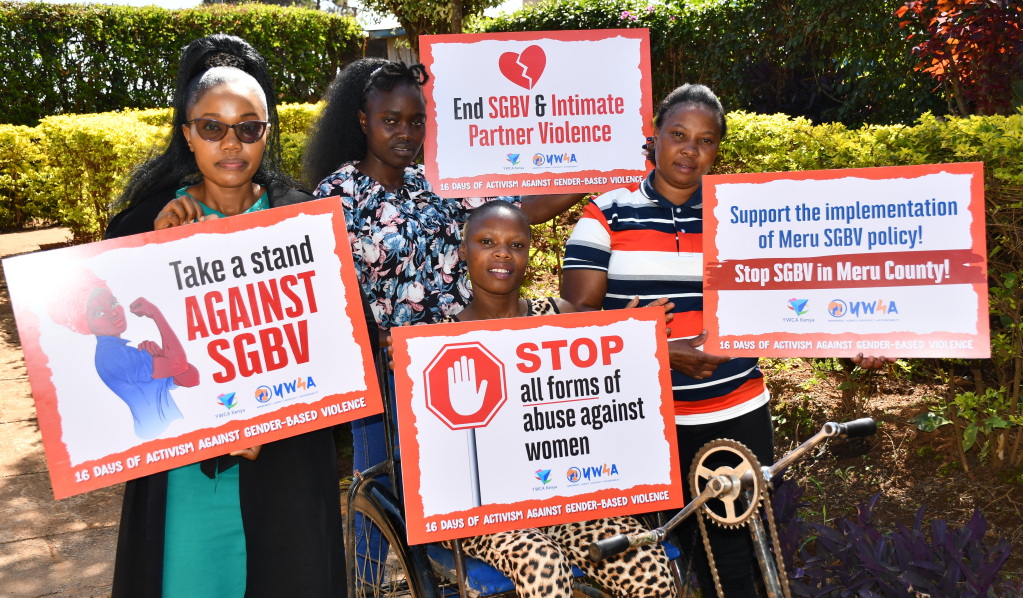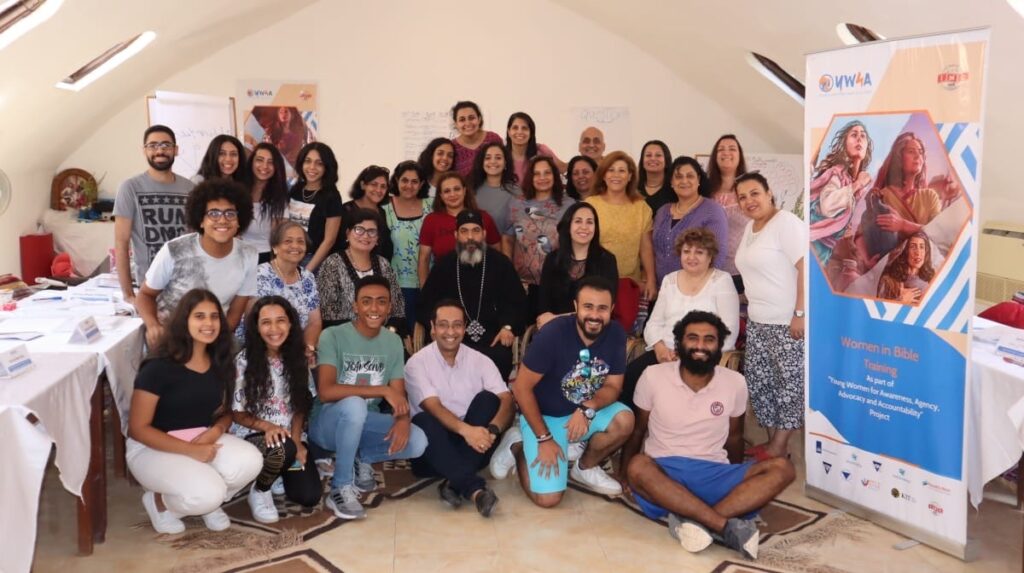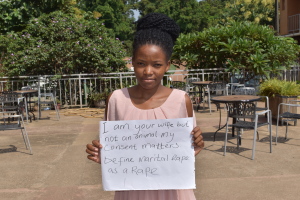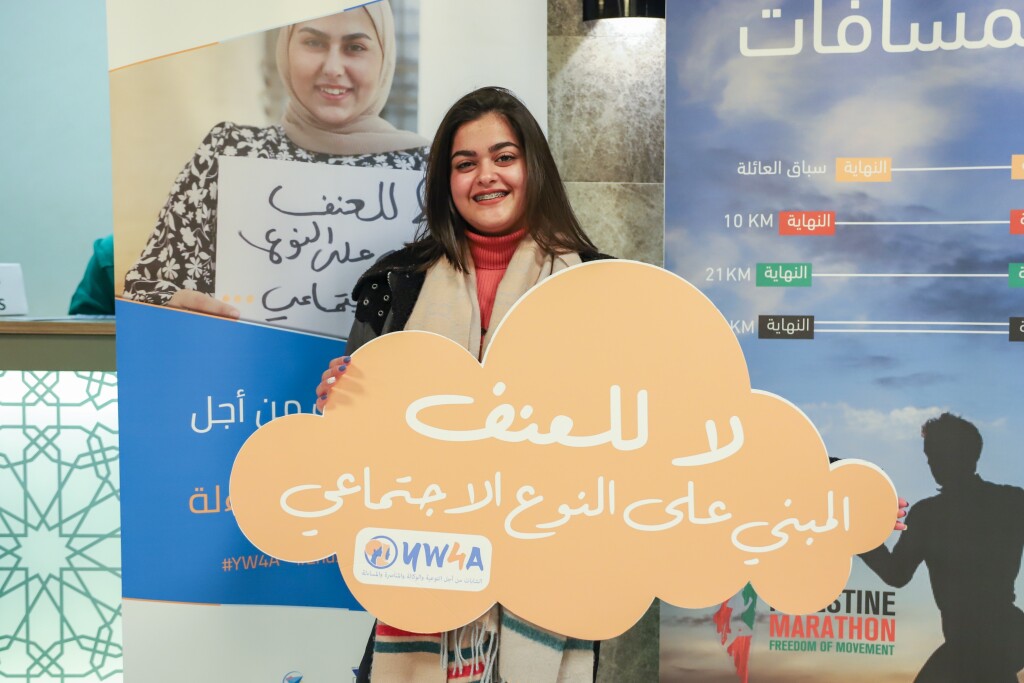When home is where the harm is: Call to Action against Domestic Violence
On August 12 every year, the world celebrates the International Youth Day (IYD), an occasion to spotlight the transformative power of youth in changing our world for the better. This year IYD is celebrated under the theme “Intergenerational solidarity: Creating a World for All Ages“[1] in contribution to the achievement of the sustainable development goals (SDGs) by emphasizing communication and solidarity among all generations and fulfilling the promise of 2030:”leaving no one behind”.

On this day, the Young Women for Awareness, Agency, Advocacy and Accountability (YW4A) Partnership and Initiative raises an intergenerational voice against domestic violence. Domestic violence is scourge that is taking various forms of abuse, often directed towards women due to power imbalances and gender inequalities. Be it physical, sexual, emotional, economic, and/or psychological violence and/or threats, the abuse often goes unreported as perpetrators are either spouses, partners or family members. This means that often, women are violated in spaces where they should feel safest – at home.
The absence or poor implementation of legal protection frameworks and adequate survivor-centred services such as medical treatment and health care, psychosocial care and support, safety and protection, as well as the lack of education and livelihood opportunities further puts women at greater risk of abuse. According to UN Women, violence in families is driven by gendered inequalities in three ways[2]: through social norms about men’s entitlement and dominance vis-à-vis the expectation that women be subservient; women’s economic insecurity in the family; and expectations that women should preserve family harmony.

The YW4A partnership and initiative contributes to addressing negative norms and practices, and key factors that put women at risk of domestic violence.This is to ensure that homes become the safe spaces that they ought to be. Our work supports young women in Egypt, Kenya, Palestine, and South Sudan, to strengthen and diversify their participation and amplify their voices to effectively influence decision-making towards gender-just laws, policies, norms, and practices related to their bodily integrity and equal participation.
We, the YW4A partners join hands with young women in Egypt, Palestine, Kenya and South Sudan in calling for an end in to domestic violence in the following ways:
- The adoption, amendment, withdrawal or effective use and implementation of laws and policies towards domestic violence. Specifically:
- Improving the existing draft law on domestic violence in Egypt,
- Improve the existing draft law on domestic violence In Palestine and its enactment into law.
- Repeal Section 247(3) of Penal Code Act on marital rape and the enactment of the draft Anti-GBV Bill in South Sudan and
- Repeal of Section 43(5) of the Sexual Offences Act in Kenya.
- Coordinated and multisectoral support services for survivors; specifically, the provision of help-lines, health services, police services, shelters and safe accommodation, psychological support, free legal services, justice services and support services for children witnessing or experiencing violence in the home.
- A sustained call to changing attitudes, norms and behaviours that justify, minimize and normalize domestic violence
- Substantial long-term investments in domestic violence prevention.

Statistics on domestic violence
The WHO (2013) reports that one in three women in the world experienced violence at least once in her lifetime; in 2020, around 81,000 women and girls were killed worldwide, 58% of which died at the hands of an intimate partner or a family member[3] (UNODC) (WHO, 2013).
- In Egypt, approximately 7.8 million women experience all forms of violence every year, whether the perpetrators are relatives or strangers[4] (Economic Cost of GBV Survey); one third of married Egyptian women between the ages of 15 and 49 had experienced physical violence since they were 15 years old.
- In Palestine, according to (PCBS, 2021), 58.2% of women (15- 64) were subjected to violence (at least once) by their current/former husbands, whatever its form. In addition, 9 out of 10 children (90.1%) experienced physical and/or psychological violence in 2019-2020 from childcare providers (including their parents).
- In Kenya, the most recent data on domestic violence is available in the 2014 demographic health survey[5] which indicated that about 41% of women reported experienced physical or sexual violence from their husbands or partners in their lifetime. There’s a lack of up-to-date national data on the prevalence of domestic violence in Kenya. However, in a statement on the GBV prevalence over the COVID-19 pandemic[6], the state department for gender reported that the number of GBV cases recorded between January and June, 2020 had an increase by 92% compared with the same period of the previous year (2019).
- In South Sudan, about 65٪ of women and girls have experienced physical and/or sexual violence in their lifetime, and 51% have experienced intimate partner violence[7] (UNICEF, 2019) The rate of child marriage is estimated at 51.5% (Global Database on Violence against Women).

[1] International Youth Day 2022 | United Nations For Youth
[2] Progress-of-the-worlds-women-2019-2020-en.pdf (unwomen.org)
[3] UN_BriefFem_251121.pdf (unodc.org)
[4] Costs of the impact of Gender Based Violence (GBV) WEB.pdf (unfpa.org)
[5] Kenya Demographic and Health Survey 2014 [FR308] (dhsprogram.com)
[6] https://gender.go.ke/wp-content/uploads/2021/04/Statement-by-Cabinet-Secretary-on-Increased-GBV-in-the-Country.pdf
[7] December 2019 – CP GBV Briefing Note – Final (unicef.org)